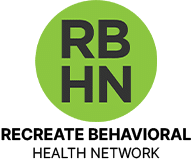A recovery coach is a nonclinical professional who uses their lived experience with substance abuse disorder to support people in the same position. They act as a personal guide and mentor, helping people in recovery achieve realistic short- and long-term goals, connect with the appropriate resources, and build healthy coping strategies.
If you’re looking for recovery coaching in New Jersey but unsure where to start, you’re in the right place. This article covers everything you need to know about recovery coaching, including its effectiveness, how it differs from therapy, and how to become a certified recovery coach in New Jersey.

A Brief History of Recovery Coaching
Recovery coaching has been around since the early 1840s. At the time, individuals who had overcome addiction would travel across communities and offer personal consultations to those committed to abstinence.
However, it wasn’t until the early 2000s that the term ‘recovery coach’ was officially coined.
It first appeared in a 2006 paper titled Sponsor, Recovery Coach, Addiction Counselor by research consultant William L. White, which explores the concept of recovery management, its foundations in the 1948 Minnesota Model, and how recovery coaching can complement traditional addiction treatment.
Today, recovery coaching is one of the most effective treatment plans for addiction recovery.
In a 2021 study published by Harvard instructor Dr. Jessica Magidson, patients who worked with a recovery coach were more than twice as likely to continue their recovery care. Around 70% attended follow-up appointments, compared to less than 30% of those without coaching support.
The study has also found a 44% reduction in hospitalizations and a 9% reduction in emergency department visits in the six months following contact with a recovery coach.
What Does a Recovery Coach Do?
A recovery coach uses their own lived experience with SUD to guide patients through recovery. Here are some of the key responsibilities of a recovery coach:
- Offer emotional support and encouragement during recovery
- Helps clients set and work toward personal recovery goals
- Assist with building daily routines and healthy habits
- Connects clients with the right resources (therapy, housing, employment, support groups, etc.)
- Support clients through relapses or setbacks without judgment
- Keeps clients accountable and committed to their recovery goals
- Provide education on overdose prevention
- Helps clients take more control of their lives and manage the complexities of day-to-day living
In a way, recovery coaches can be considered professional friends. Since they have their own experience with substance abuse, they know firsthand how difficult recovery can be and can empathize better with their clients.
Many people become recovery coaches because they want to offer the kind of support they wish they had during their own recovery.
Recovery coaches often go beyond what a typical therapist would do. They’d offer support through video chat, text clients outside office hours to check in, and even encourage them to call whenever they feel overwhelmed or are struggling.

What’s the Difference Between a Recovery Coach vs. Therapist?
A recovery coach and a therapist may have the same end goal—to help patients achieve and maintain long-term recovery—but they take different approaches to get there.
Therapists are licensed professionals who provide clinical treatment, diagnose mental health conditions, and guide clients through evidence-based therapies like Cognitive Behavioral Therapy (CBT), Dialectical Behavior Therapy (DBT), and Exposure Therapy, among others.
They tackle deep-seated emotions and trauma, and help patients identify and change unhealthy emotions, thoughts, and behaviors.
Recovery coaches, on the other hand, aren’t medical professionals. They don’t diagnose or prescribe medication to treat mental health or substance use disorders (SUBs).
Many use evidence-based practices like motivational interviewing, relapse prevention planning, and strengths-based care management to encourage healing, but they don’t use clinical therapies like medical professionals do. Instead, they focus on practical, peer-based support. They help people set recovery goals, build a support system, and stay accountable.
Recovery coaches and therapists often work together to give patients the best possible care during addiction recovery.
Coaches focus on the present and future, while therapists touch upon the past to help patients understand the root causes of their behavior, trauma, or addiction. One helps with the practical side of recovery, while the other addresses the emotional side.
What Is Best For My Treatment?
Therapists work best with individuals struggling with deep-seated emotional and psychological issues.
They’re trained to help clients process trauma, manage mental health conditions, and explore the underlying causes of addiction or harmful behavior patterns.
They can prescribe medications to help a patient’s quality of life, and guide them toward emotional healing and long-term psychological well-being.
Meanwhile, recovery coaches are more beneficial for people who require ongoing support during addiction recovery. They focus less on analyzing the past and more on how to move forward. They help people build practical skills for everyday life and navigate day-to-day challenges.
The level of support between a therapist and a recovery coach also differs.
Recovery coaches offer a hands-on approach to recovery, providing continuous guidance and accountability. Their involvement often extends beyond traditional office hours, with some actively encouraging patients to contact them when challenges arise.
They also help patients handle real-world challenges that can be difficult to manage during recovery, like securing jobs, finding stable housing, rebuilding relationships, or navigating treatment or support groups.
In contrast, therapists work within scheduled sessions and focus on clinical goals, such as improving emotional regulation, processing trauma, or managing co-occurring mental disorders.
Both Roles Are Valuable, Depending on Your Needs
Neither a therapist nor a recovery coach is better than the other. Each offers unique forms of support that can be equally valuable depending on a person’s needs.
Many employ the services of both to find emotional stability and a path forward. This is why a recovery coach and a therapist often work side by side. One may recognize the benefit of the other and recommend the patient to use their services.

How Do I Become a Certified Recovery Coach In New Jersey?
To become a certified recovery coach in New Jersey, participants must meet the requirements set by the New Jersey Addiction Professionals Certification Board. These are as follows:
Basic Eligibility Requirements
Participants must be at least 18 years old and possess a high school diploma, GED, or higher to qualify for training. They must also have lived experience with mental health or substance use disorder, with at least six months of continuous recovery.
Training
In New Jersey, those seeking a Certified Peer Recovery Specialist (CPRS) credential must complete 45 to 100 hours of education, 25 hours of pre-approved supervised training in a licensed agency, and 500 hours of work experience in a pre-approved recovery setting.
Apply For Certification
Once all requirements are met, participants can apply for certification through the Addiction Professionals Certification Board of New Jersey (APCB NJ).
In New Jersey, participants aren’t required to take the IC&RC exam to get the standard CPRS credential.
However, this certification is only valid in New Jersey. If participants wish to use their credentials outside of New Jersey, they’ll need to pass the IC&RC Peer Recovery Specialist exam to obtain an International Certified Peer Recovery Specialist (ICPRS) credential.
Many colleges/organizations in New Jersey offer CPRS training and certification programs. This includes the Brookdale Community College and the Mental Health Association of New Jersey’s Consumer Connections, both of which provide a 48-hour Peer Recovery Support Specialist training course using the Comprehensive Capital Analysis and Review (CCAR).
The New Jersey Peer Recovery Network (NJPN) also provides approved training that applies toward initial CPRS and ICPRS credentials, along with specialty and renewal courses to expand peer recovery skills.
NJPN offers certification fee reimbursement for Certified Peer Recovery Specialists involved in approved DMHAS-funded peer initiatives, helping to offset the cost of certification fees for eligible candidates.
FAQs
Do recovery coaches only work with people who are newly sober?
Is recovery coaching covered by insurance?
Is a recovery coach more expensive than a therapist?
Where can I find a recovery coach in New Jersey?


